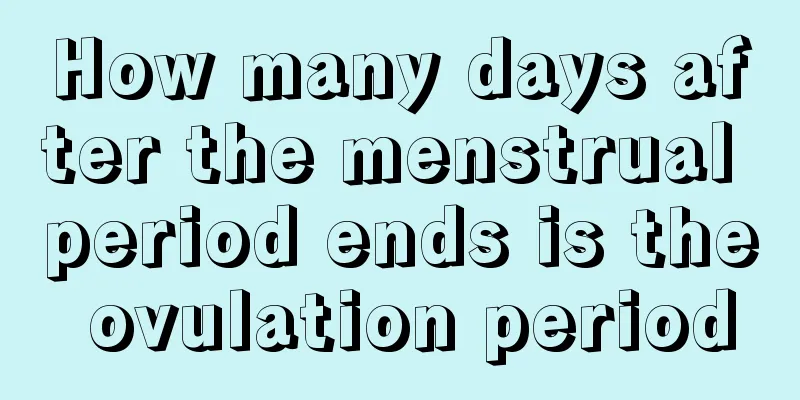What happens if I don’t have my period after giving birth? Experts answer your questions

|
Normally, women will have their period some time after giving birth, but for a small number of women, their period is delayed. This may be caused by a variety of factors, such as great harm caused to the woman during childbirth, or a bad mental state. 1Damage caused by production Childbirth is extremely physically demanding for women, especially for some women who undergo caesarean section. If there is heavy bleeding accompanied by shock, postpartum infection, disseminated intravascular coagulation, etc. after the operation, it may lead to amenorrhea. Therefore, it is very likely that irregular menstruation will occur within a short period of time. 2. Endocrine disorders after childbirth Women who have just given birth are temporarily in a state of endocrine disorder due to the termination of pregnancy. At this time, the ovaries are less sensitive to the stimulation of gonadal hormones, and the time of the first menstruation after delivery may not be regular. 3. The impact of poor mental health after childbirth Many women are experiencing pregnancy and childbirth for the first time. They cannot adapt to the feeling of being a mother for a while and have a weak psychological endurance. They often experience negative emotions such as anxiety, depression, and tension after childbirth. These negative emotions may affect the normal onset of menstruation. 4. Breastfeeding The first menstruation after childbirth is most affected by breastfeeding, and the number of breastfeeding times is closely related to the time of menstruation resumption. Generally speaking, the more times a baby breastfeeds and the longer the breastfeeding time, the later the menstruation will return. Since the number of breastfeeding and the time of breastfeeding will change after the baby starts to add complementary foods, the earlier the baby starts to add complementary foods, the number of breastfeeding and the time of breastfeeding will decrease accordingly, and the time of menstruation will also be advanced accordingly. The time of recurrent menstruation varies from person to person. In addition to being affected by breastfeeding, it is also related to the time when the baby starts to add complementary foods, the age of the mother, ovarian function, and the recovery of endocrine function. |
<<: What to do if pregnant women have breast pain? Five methods to teach you
>>: The reason why postpartum menstruation is black, be alert after reading this
Recommend
What foods should not be eaten when having breast cysts
If patients with breast cysts cannot abide by the...
What foods are best for low progesterone?
Going to the hospital for regular prenatal check-...
Is the fetus entering the pelvis when the head is exposed first?
Pregnancy is a long and happy process for women. ...
How to make barbecue sauce? What is the difference between barbecue honey and the honey we usually drink?
Grilling with charcoal gives it a smoky flavor. A...
Why is there blood in the vaginal discharge after getting the ring?
Some women will wear an IUD after giving birth, b...
How long does it take to recover after childbirth?
The physical fitness of many mothers who have jus...
What are the five signs that a woman is gaining weight?
Obesity is a very popular problem in modern socie...
What will happen if you don't eat during the confinement period?
The body of a mother needs some time to recover a...
What should I do if the episiotomy wound line is broken?
In the eyes of some pregnant women, the wound fro...
What is the problem with yellow cucumber leaves? How to solve the problem of yellow cucumber leaves
Cucumber is a common vegetable in life. Because i...
How to control high fasting blood sugar in the morning
Generally speaking, the blood sugar level is norm...
What is the etiquette for drinking tea and making tea? What is the etiquette for tying a tie?
Etiquette accompanies every aspect of our lives, ...
These 3 types of people should never perm their hair easily!
As the saying goes, the three things you need for...
Do moxibustion at home, and in just 5 days, the wound turned into ulceration on the whole leg! To prevent diabetic foot, pay attention to the little things in life
"Director Li, long time no see! I have recov...
What are the dangers of dimple nails?
A dimple nail refers to a device similar to a lip...









